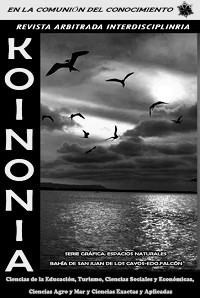Means of proof in sexual crimes
DOI:
https://doi.org/10.35381/r.k.v8i1.2803Keywords:
Sexual abuse, social justice, criminal sanction, (UNESCO Thesaurus)Abstract
The general objective of the research was to describe the means of proof in sexual crimes. It was developed from the quantitative paradigm, and was also framed from a documentary-bibliographic design, through the inquiry, collection and critical analysis of documents and bibliographic references, based on the methodical, rigorous and deep exploration of various documentary sources such as scientific research, articles and refereed papers, theses, among others. In addition, the inductive-deductive method was applied. The analytical-synthetic method was also used. The sample was made up of 120 persons who have cases contemplated in the judicial files and of more recent date. It is concluded that there are a number of factors that may contribute to the higher incidence of rape among women. These factors include gender roles, stereotypes and social norms that may perpetuate violence against women. The highest frequency of offenses occurs in boys and girls aged 10 to 14 years
Downloads
References
Casas-Muñoz, A., Carranza-Neira, J., Intebi, I., Lidchi, V., Eisenstein, E., y Greenbaum, J. (2023). Abordaje de la violencia sexual infantil: un llamado a la acción para los profesionales de América Latina. [Addressing Child Sexual Violence: A Call to Action for Latin American Professionals]. Rev Panam Salud Pública, 47, e54. https://doi.org/10.26633/RPSP.2023.54
Congreso de la República. (1993). Constitución Política del Perú. [Political Constitution of Peru]. Edición del Congreso de la República. https://n9.cl/fhmmd
Cuba-Muñiz, M. A., Arce-Godoy, W., y Vilca-Aguilar, A. B. (2023). Ejecución de la reparación civil en los delitos de violación sexual. [Enforcement of civil reparation in rape offenses]. Revista Lex, 6(19), 22–37. https://doi.org/10.33996/ revistalex.v6i19.144
Dávila Newman, G. (2006). El razonamiento inductivo y deductivo dentro del proceso investigativo en ciencias experimentales y sociales. [Inductive and deductive reasoning within the research process in experimental and social sciences]. Laurus, 12(Ext), 180-205. https://n9.cl/nx847
El Presidente de la República. (2004). Código Procesal Penal. [Code of Criminal Procedure]. Decreto Legislativo Nº 957. https://n9.cl/mlclv
Enciso Medina, J. (2017). La validez de los medios probatorios en el proceso de investigación penal y la tipificación de los delitos de violación sexual en San Juan de Lurigancho. [The validity of evidence in the criminal investigation process and the classification of rape as a crime in San Juan de Lurigancho]. Tesis Doctoral. Universidad Inca Garcilaso de la Vega. https://n9.cl/po9k7c
Gutiérrez-Ramos, M. (2021). La violencia sexual en el Perú. [Sexual violence in Peru]. Revista Peruana de Ginecología y Obstetricia, 67(3), 00007. https://dx.doi.org/10.31403/rpgo.v67i2338
Mejía-Rodríguez, U., Bolaños-Cardozo, J., y Mejía-Rodríguez, A. (2015). Delitos contra la libertad sexual. [Crimes against sexual freedom]. Acta Médica Peruana, 32(3), 169-172. https://n9.cl/9neex
Palella, S., y Martins, F. (2012). Metodología de la Investigación Cuantitativa. [Quantitative Research Methodology]. Fondo Editorial de la Universidad Pedagógica Experimental Libertador. Caracas, Venezuela
Parodi Ambel, K. (2023). Abordando los sesgos contra las mujeres víctimas de delitos sexuales en el Poder Judicial chileno: un estudio de caso. [Addressing bias against women victims of sexual crimes in the Chilean Judiciary: a case study]. Derecho PUCP, (90), 139-187. https://dx.doi.org/10.18800/ derechopucp.202301.005
Ramos Olivera, G. (2022). La rectificación testimonial de la víctima, en los delitos de violación sexual en el Distrito Judicial de Tarapoto – 2020. [The rectification of the victim's testimony in the crimes of rape in the Judicial District of Tarapoto –2020]. Tesis de Grado. Universidad César Vallejo. https://n9.cl/p73t4
Riva de Canelo, C., Rojas Luján, V., Asseo Narváez, C., Rodas Mendoza, Y., y Ulloa Escobedo, C. (2022). La prueba anticipada en el debido proceso: Caso de la declaración de la víctima por delitos sexuales. [Anticipatory evidence in due process: The case of the victim's statement for sexual offenses]. Ciencia Latina Revista Científica Multidisciplinar, 6(4), 2208-2226. https://doi.org/10.37811/ cl_rcm.v6i4.2747
Rodríguez, A. y Pérez, A. O. (2017). Métodos científicos de indagación y de construcción del conocimiento. [Scientific methods of inquiry and knowledge construction]. Revista EAN, 82, 179-200. https://doi.org/10.21158/ 01208160.n82.2017.1647
Salame Ortiz, M., Pérez Mayorga, B., y San Lucas Solórzano, M. (2020). La víctima en los delitos contra la integridad sexual. [The victim in crimes against sexual integrity]. Revista Universidad y Sociedad, 12(3), 353-363. https://n9.cl/5a6l
Tuya Espinoza, G. (2023). Abuso sexual contra niños, niñas y adolescentes en Lima, Perú: una aproximación general a los patrones de personalidad, características sociodemográficas y el riesgo de violencia de los perpetradores. [Sexual abuse against children and adolescents in Lima, Peru: a general approach to personality patterns, sociodemographic characteristics and perpetrators' risk of violence]. Revista Criminalidad, 65(1), 151-169. https://doi.org/10.47741/17943108.407
Yanes Sevilla, M. (2021). El testimonio anticipado como medio de prueba en delitos de abuso sexual. Estudio de casos. [Advance testimony as a means of proof in sexual abuse crimes. Case studies]. Tesis de Maestría. Universidad Andina Simón Bolívar. https://n9.cl/rziwr
Published
How to Cite
Issue
Section
License
Copyright (c) 2023 Yuliana Maribel Yaranga-Serrano, Juan Abraham Ramos-Suyo, Carmen Edith Aponte-Mariño, María Fernanda Mesajil-Yaranga

This work is licensed under a Creative Commons Attribution-NonCommercial-ShareAlike 4.0 International License.
CC BY-NC-SA : Esta licencia permite a los reutilizadores distribuir, remezclar, adaptar y construir sobre el material en cualquier medio o formato solo con fines no comerciales, y solo siempre y cuando se dé la atribución al creador. Si remezcla, adapta o construye sobre el material, debe licenciar el material modificado bajo términos idénticos.
OAI-PMH URL: https://fundacionkoinonia.com.ve/ojs/index.php/revistakoinonia/oai.









